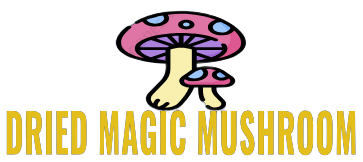Uncategorized
DMT crystals vape carts Boston
Lysergic acid diethylamide
Buy liquid LSD online Denver, LSD gel tabs Washington, Buy DMT crystals, dmt vape pen Boston, Buy ketamine crystals El Paso, Nashville
(also known as Lysergide, LSD-25, LSD, L, Lucy, and Acid) is a classical psychedelic substance of the lysergamide class. It is considered to be the the best known, most researched, and culturally influential psychedelic substance. It is thought to produce its psychedelic effects by binding to serotonin receptors in the brain, although the precise mechanism is not fully understood.
The psychoactive effects of LSD were first discovered in 1943 by Albert Hofmann, a Swiss chemist working for Sandoz Laboratories. In the 1950s it was distributed by Sandoz under the name Delysid for use as an experimental drug in psychotherapy and scientific research. During this period, LSD generated widespread interest from clinicians, researchers, and intellectuals and was notoriously the subject of a secret investigation by the U.S. Central Intelligence Agency (CIA) for potential applications in “mind control”. Recreational LSD use became a central part of the 1960s youth counterculture movement which eventually led to its prohibition in 1971.
Following a 40 year hiatus, research into the therapeutic applications of LSD has experienced a revival. It is currently being investigated for the treatment of a number of ailments including alcoholism, addiction, cluster headache, and anxiety associated with terminal illness. LSD remains in widespread illicit use for recreational and spiritual purposes. The lifetime prevalence of LSD use among adults is in the range of 6-8%.
Subjective effects include open and closed-eye visuals, time distortion, enhanced introspection, conceptual thinking, euphoria, and ego loss. LSD is commonly reported to be able to evoke mystical-type experiences that can facilitate self-reflection and personal growth. It is considered by some to be the first modern entheogen, a category which is otherwise limited to traditional plant preparations or extracts.
Unlike other highly prohibited substances, LSD has not been proven to be physiologically toxic or addictive. However, adverse psychological reactions such as severe anxiety, paranoia, delusions, and psychosis are always possible, particularly for those predisposed to psychiatric disorders. As a result, it is highly advised to use harm reduction practices if using this substance.

Physical effects
Stimulation – In terms of its effects on physical energy levels, LSD is usually regarded as being very energetic and stimulating without being forced. For example, when taken in any environment it will usually encourage physical activities such as running, walking, climbing or dancing. In comparison, other more commonly used psychedelics such as psilocybinare generally sedating and sedentary.
Spontaneous bodily sensations – The “body high” of LSD can be described as prominent in comparison to its accompanying visual and cognitive effects. It behaves as a euphoric, fast-moving, sharp and location specific or generalized tingling sensation. For some, it manifests spontaneously at different, unpredictable points throughout the trip, but for most, it maintains a steady presence that rises with the onset and hits its limit once the peak has been reached.
Physical euphoria – LSD is capable of producing a unique form of physical euphoria in certain situations. However, this effect does not occur as prominently or reliably as with substances like entactogens or opioids, and can just as easily manifest as physical discomfort without any apparent reason.
Perception of bodily lightness – The stimulation and energy LSD produces can cause the user to feel as if they are moving weightlessly.
Tactile enhancement – Feelings of enhanced tactile sensations are consistently present at moderate levels throughout most LSD trips. If level 8A geometry is reached an intense sensation of seeming to “become aware of and feel every single nerve ending across your entire body all at once” has been described.
Changes in felt bodily form – This effect is often accompanied by a sense of warmth or unity and usually occurs during and up to the peak of the experience or directly afterward. Users can feel as if they are physically part of or conjoined with other objects. This is usually reported as feeling comfortable in its sensations and even peaceful, compared to other substances that induce this effect like salvia.
Temperature regulation suppression[4] – LSD appears to cause the body to lose some of its ability to regulate its temperature. While usually harmless, users should be careful when taking LSD in conditions of extreme hot or cold.
Increased bodily temperature[25] – Potentially dangerous states of overheating have been reported to occur in certain conditions, particularly with higher doses due to the fact that LSD raises the amount of serotonin in the body. Users are advised to monitor their core temperature and be cautious if taking LSD in hot or overcrowded outdoor environments.
Nausea – Mild nausea is occasionally reported on moderate to high doses and either passes after the user vomits or gradually fades by itself as the peak sets in.
Stamina enhancement – LSD is reported to enhance the user’s stamina for physical activities such as hiking, running, or dancing. Some people have also reported using small doses to improve athletic performance. However, this effect is generally mild compared to the stamina enhancement of stimulants.
Appetite suppression – LSD can suppress appetite in a manner similar to (although not as strong as) stimulants, especially for fatty foods. It is advised to eat a medium sized meal two to three hours before a trip to ensure one has enough energy to last through the whole trip. During the trip, it is recommended to eat snacks like fruits or nuts or smoothies instead of full meals to avoid nausea and gastric discomfort.
Excessive yawning – LSD can induce fits of excessive yawning, especially during the come up phase.
Seizure – Seizures are very rare but may occur in those who are predisposed to them, particularly while in physically taxing conditions such as being dehydrated, undernourished, overheated, or generally fatigued.
